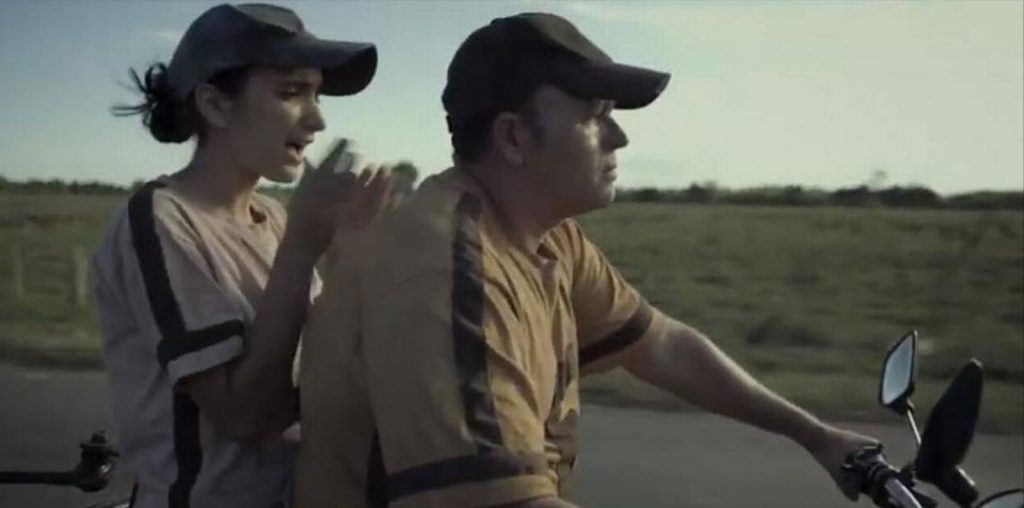
The unique blend of documentary and narrative styles found in American Splendor come from the husband and wife filmmaking team of Shari Springer Berman and Robert Pulcini, who come from a documentary background – a background that lends itself perfectly to Harvey Pekar’s real world…
We recently spoke with Shari and Robert about the creation of American Splendor.
So, Shari and Robert, how did this project actually come about? ^ Robert: Actually this project was brought to us, which is weird because we’ve always originated all our projects, but Ted Hope has been trying to get this movie made for a decade and we always wanted to work with him. He called us up and he said, “This is something that’s really close to my heart and I really want you guys to consider it.” He started sending us these comic books. I was kind of familiar with Bob and Harv’s comics, but I hadn’t really looked at them in a long time and I kind of remembered Harvey, but when I started to read the comic books again, I was like, “Wow. This is a great idea.” ^ Shari: Then he gave us a really bad taped off the television VHS of Harvey’s appearances on Letterman and once we saw that we just sat there, our jaws were dropped and we were like, “This movie’s got to be made and we’ve got to put Harvey Pekar in it.”
Now, how did you make the transition from doing documentary to doing a narrative film? ^ Robert: Well, what’s interesting with us is that we actually have kind of a history writing bio pics for the studios. We wrote a bio pic of Esquivel that Fox Searchlight was very excited about and we also wrote a bio pic about Michael Romanoff who was this famous imposter. We’re working on a bio pic now of Sam Kinison. So, it’s kind of a similar process to documentary filmmaking because you’re taking a life and you’re figuring out how to whittle it down to a story. It’s like having a lot of footage, so this transition was not that really unnatural for us. ^ Shari: It was also like, “Wow we have lights, we have a crew, we have a location that’s quiet,” so it’s quite a bit easier, in some ways, to make a narrative film than it is to make a documentary because you actually have the means to make it with. ^ Robert: And our films are always kind of hybrids, anyway. They weren’t really pure documentary style.
This movie is not a traditional feature film in the sense that it mixes some documentary footage, some cartoon footage…Where do those ideas come about? How do you make that work? ^ Shari: We wrote the script in about three weeks. We shot the movie in 24-25 days and it took like over a year to finish it in post, so bringing it all together and having it seamlessly flow from one thing to the next was the biggest challenge. American Splendor, sort of breaks all the rules of comic books. When he started it, it was the first auto-biographical comic book. It wasn’t about superheroes. It was about a file clerk in Cleveland. He didn’t have super powers, he could barely drive a car and get a date and Harvey’s life is about breaking the rules and having this incredibly rebellious spirit. So, we felt compelled because of that to make a movie that was original in form and that broke the rules and we felt like we had the license to do it.
You’re a writing, directing, husband and wife team. How does that work on the set? Any conflict? ^ Robert:Oh, yeah. You know what’s weird with documentary filmmaking – it’s so crazy and hectic that sometimes we would just split up with two different cameras and we wouldn’t see each other for long stretches of time. So, we kind of had to work it out on the narrative film because we got our rhythm down. I kind of focused more on the camera and Shari kind of focused more on the actors and then we’d comment to each other about what we were doing and that’s kind of where we started, but we would ultimately end up crossing those lines. ^ Shari: If there was a conflict, which definitely happened on occasion, although we tend to agree on a lot of things, we would just step aside and keep everybody away and work it out and come back and have a decision. Hopefully, it was mine… no, I’m kidding.
What do you hope people get out of this movie? ^ Robert: You know, I kind of feel like Harvey’s the patron saint of every creative spirit that’s been trapped in a dead-end job. He found a way to express himself through a medium that really wasn’t that welcomed to him, because he doesn’t draw, but he had the opportunity and he took it and he seized it and he really has the ability to move people and I think that it’s an important lesson. There’s some kind of salvation in creative expression, I think I’d like people to walk away from the movie thinking about that.
